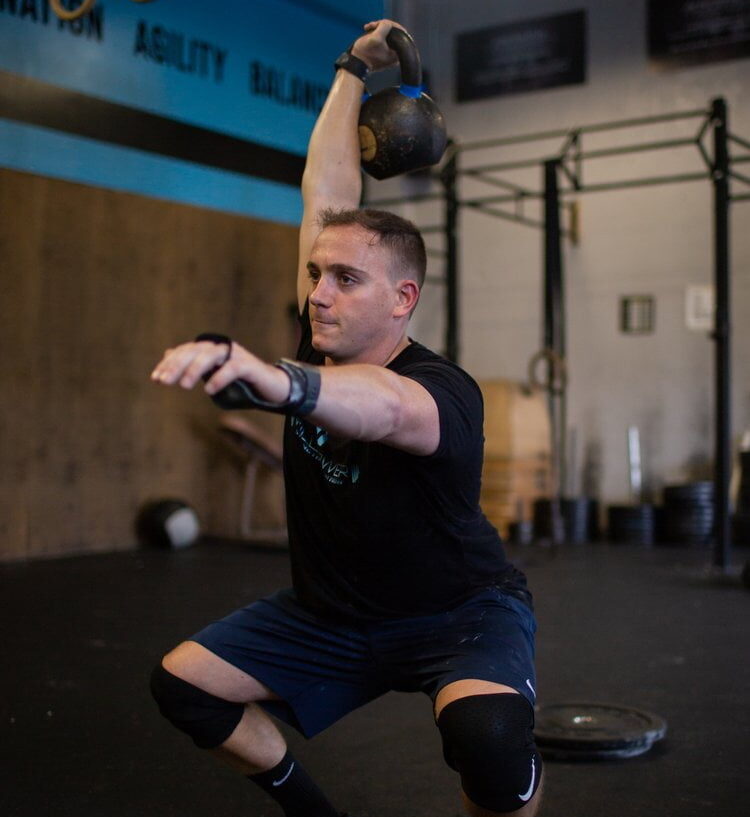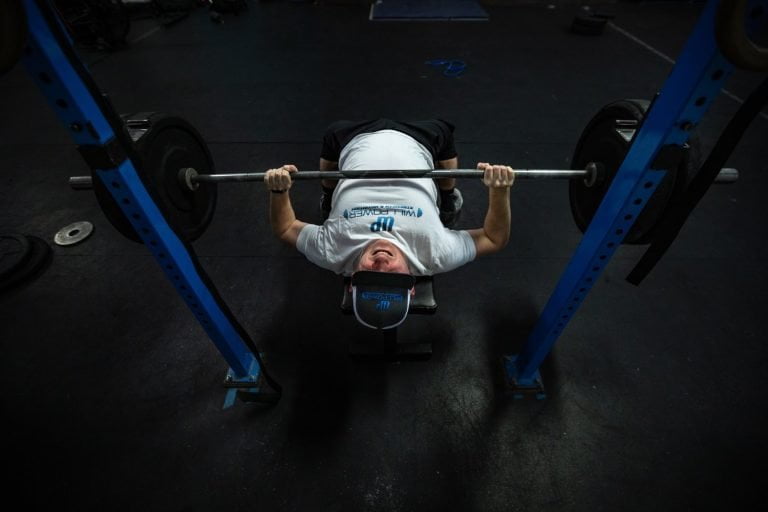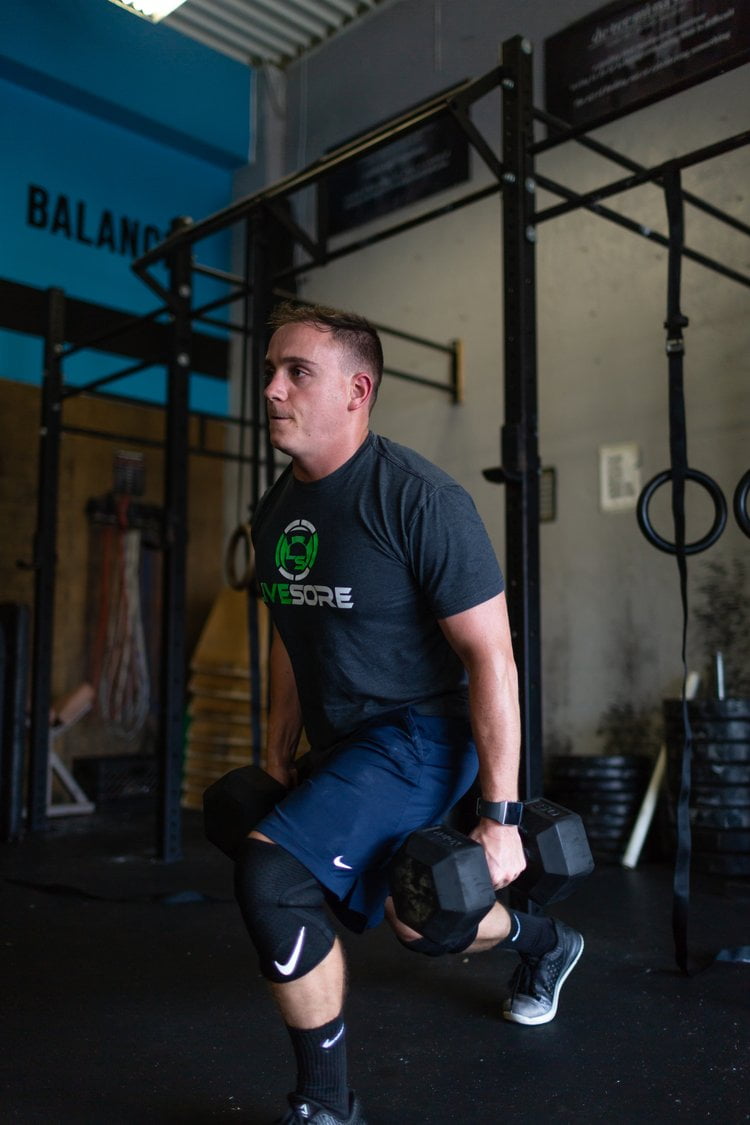4 Reasons why I Stopped Writing My Own Workouts and Why I Think You Should Too
The temptation to be your own coach and program your own training is a big one. The idea of being in complete control of your training can seem like a good idea initially. You can prioritize what you want to prioritize and ensure that training reflects exactly how you feel day to day. I have fallen into this trap for a large part of the last three years of my own training. I had very specific training goals and I also split my training time between a collegiate weight room and a premier CrossFit facility. I had every piece of equipment I could ever need to program. Plus, I was a strength & conditioning coach so naturally I felt that I was best suited to handle my own program design. Deep down, I knew this was not the case, but, I naively chose to be my own coach and didn’t realize it was a mistake until it was time to compete in my chosen sport.
The defining moment when I realized that best practice is to not program for yourself was during the 2020 CrossFit Open. I thought that I was in the best shape of my training career. I had done a full review of my strength and weaknesses and programmed accordingly for a year leading up to the season. I believed that I was as prepared as possible to throw down against the other competitors in my gym, my region and the country. I quickly learned however, that my program design was not as objective as I thought it had been. Glaring weaknesses that I did not even know I had reared their ugly head. The weaknesses that I had identified absolutely showed improvement but they also happened to be things that I enjoyed working on, like my absolute strength numbers and gymnastic skills. The longer, more grueling workouts that are typically tested in the open like 20 minute AMRAPs or workouts with high volume thrusters such as 19.5 were not priorities in my training even though they should have been.
Regardless of what your sport of choice is it will always behoove you to hire a qualified coach even if you are also a qualified coach. Hiring someone else to organize your training around your goals and abilities will always be superior to writing your own workouts and here’s why:
1) You’ll never push yourself as hard as someone else will
One of the biggest issues with writing my own programming was prescribing the right level of difficulty of training. When I programmed for myself, I would write workouts that absolutely would challenge me and leave me feeling exhausted when the last rep was completed. But, there is a big difference between a 10 minute AMRAP with movements that I enjoyed and a 20 minute AMRAP with movements that I hope never come out in the open. I use this example because a 20 minute AMRAP is a time domain that I really struggle in and my own biases in my own programming prevented me from working in this time domain. But, to someone reading this, it may be the complete opposite. You may thrive in 20 minute AMRAP’s and dread the workouts that are shorter and allow for a higher power output. But, the goal of the coach is to recognize an athletes time and work domain weaknesses and prioritize them in the program, even if this leads to subpar performances in training. This way, when it’s time to compete, you’re prepared to win. When you’re programming for yourself it is very hard to consistently program workouts that you are not designed to do well in and this leads to program biases, holes in your training design and being exposed in competition.
2) A coach can objectively look at your strength & weaknesses
If you’re an athlete that doesn’t have a background in Exercise Physiology or haven’t spent the time to learn about the why’s of training this may be a no brainer. But, even if you have an education in exercise, objectively looking at your abilities and designing testing batteries to identify areas you aren’t strong in can be challenging. For starters, you may subconsciously avoid tests that involve the priorities you are not designed to do well in. You may also believe that you are weak in a certain area because of experiences in competitive situations. But, in realitym that area should not be a priority. For example, a workout that was of a short time domain and involved the combination of rowing and heavy thrusters may have been tested in a competition where you placed poorly. If you’re analyzing that experience yourself, you’re emotional response may manifest in believing that rowing and thrusters are a weakness for you. But, in reality the competition had competitors in it that were built differently than you with regards to that specific workout so they would beat you regardless. So although you placed poorly in that workout and would ultimately need to improve, It isn’t a priority in your training you were just outmatched genetically compared to the competitors in that workout.
Similarly, you may bias your training to improve the wrong quality based on preconceived notions about what you need to do to excel in the sport. For instance, if you’re a smaller athlete you may feel that you need to prioritize your strength training to improve in the sport of CrossFIt. But in reality, you are an open level competitor and the open rarely tests strength in isolation. What you really need is to continue to prioritize your engine and gymnastics ability while making incremental gains in strength until you’re able to test out of the open and into a sanctional where strength is more of a factor. Although there is a baseline of strength to compete in the open its not its focal point of testing. A coach can help you realize and remember this throughout the year to keep training in line with your ultimate goal which is to be as competitive as possible.
3) Decision fatigue can affect the quality of your own training
This reason to hire a coach and not program for yourself is more for the coaches reading this that program for athletes. But, can also apply to athletes who are responsible for making decisions for other people throughout their day. Decision fatigue is something that’s very real and can impact your ability to think critically and make appropriate choices regarding your training. When you spend so much time making sure other people’s training programs are perfected it makes it difficult to do the same for your own training because quite literally, making decisions becomes mentally exhausting.
I realized that this was a problem for me when I reviewed my training and it was a nothing but linear progressions and random metcons. There was no concern for fatigue accumulation, how certain movements fit with one another, attention to volume of movements and more. All things that would have absolutely been addressed in my athletes program because they were paying for the service and I prioritized their programs. But, because my program was last on the list and I wasn’t accountable to myself, these things tended to be overlooked. This manifested itself not only in a lack luster performance in the CrossFit Open, but also in joint aches, mismanagement of weekly fatigue and a lack of motivation to train.
4) Accountability is a powerful tool for improved effort
Accountability might be the most important reason to hire a professional coach to design your training. Many athletes are dedicated to their training, prioritize it and make adjustments in their daily schedule to ensure that it gets done. However, actually getting the training done is a small fraction of what I mean when I talk about accountability here. When you have a coach reviewing your training sessions who is actually invested in your progress they are not just looking to see if you did the workout, they want to see results! They want to know that the design they are giving you is working, they want to know if they need to make adjustments to ensure you’re ready to perform on gameday because when an athlete succeeds, the coach succeeds.
So how does this manifest itself in your training? Being accountable to a coach, whether you realize it or not, forces you to shift to that second gear you didn’t realize you had. When you’re in the suck and the metcons get ugly, knowing that your results are going to be reviewed and you’ll be asked about them makes you go just a little bit faster and squeeze out a few more reps than you want too. This is the extra daily 1% effort that maximizes performance improvements beyond basic training and prepares you to put the hammer down when it’s time to compete. Internal motivation is usually pretty high in competitive athletes, but, when you add the external motivation of performing for your coach or for the flag you’re flying like for a team you’ll be surprised at what you can accomplish
I fell into the trap of programming for myself and it ended it up biting me in the ass when it came time for competition. If the competition had reflected the biases I had in my training than chances are I would have performed really well. But, this is rarely the case for athletes in competition. If a competition favors one particular athletes strengths and exposes none of their weakness than it not a very valid test. Even for those that aren’t focused on competing, the reasons to hire a coach we spoke about today can still apply. But, rather than beating other people your competition is the person you were yesterday. Hiring a coach will always be best practice for someone with any goal because they can push you to be your best, objectively identify your weaknesses, take decisions in your training off your plate and most of all keep you accountable to give your best effort in your daily training. If you agree and think hiring a coach can help you achieve your goals, as always feel free to reach out!







